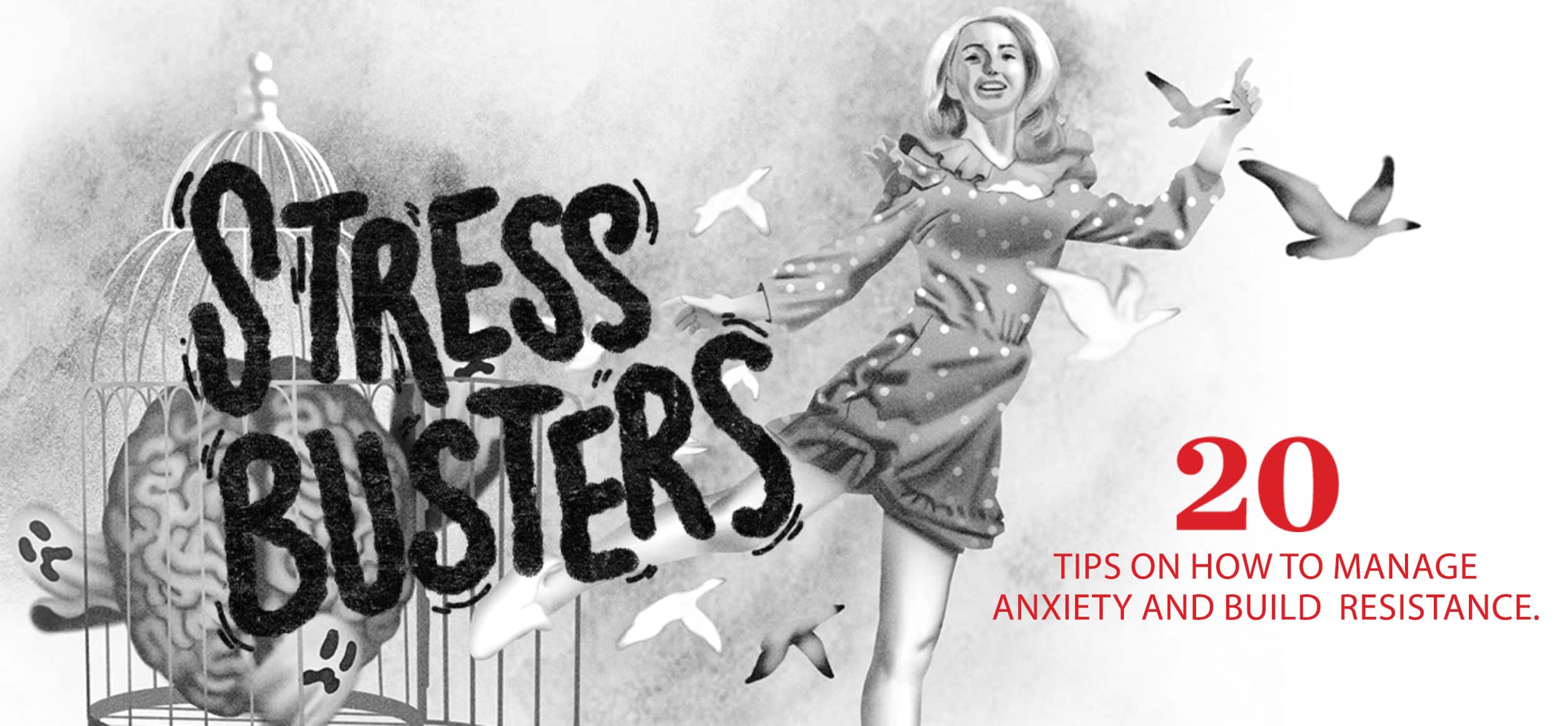
20 Ways Sign Pros Can Overcome Anxiety
Elevate your mental health with these stress-busters, including several from your peers.
Published
11 months agoon
TODAY, ANXIETY DISORDERS are the most common mental health diagnoses in the US, affecting one in three adults, according to data from the National Institute of Mental Health (NIMH). The rates are even higher among business owners in one recent study from the University of California, San Francisco, finding half of all entrepreneurs surveyed experiencing conditions such as anxiety and depression. The reasons likely have to do with the wide-ranging responsibilities operators shoulder, as well as their constant focus on the vagaries of the future. Sign pros are no different, with well over half of our Brain Squad respondents reporting they get extremely anxious over work-related concerns twice a month or more.
When we get anxious, a structure in the brain called the amygdala — the seat of fear — gets fired up and releases stress hormones such as adrenaline and cortisol, as well as glucose, into the bloodstream. Our heart, breath, sweat glands and mental faculties all ramp up. We’re now primed for a fight (or flight) for survival … which is happening entirely in our heads. It’s discomforting and exhausting.
For some, those worries create a debilitating negative spiral that can take over their lives. (And if anxiety is inhibiting your ability to function, work, sleep or do everyday things like go out of the house, we encourage you to seek professional support.) But even for people without such medical conditions, overthinking, ruminating and angst can limit career growth and the ability to enjoy life to the fullest. There’s no quick fix. In short, addressing anxiety involves learning to roll with life’s punches and to apply a heavy dose of reframing. So, what to do?

First, remember that being alive brings challenging and vexing situations. Abandon your longing for complete security and you’ll realize you never needed it in the first place.
Second, accept that the obstacle is “the way.” The path to growth is to do difficult things. That doesn’t, however, imply you need to become subservient to them. The trick isn’t to ignore fear or worry, or destroy them, but to make space for them. Writer Elizabeth Gilbert uses the analogy of a road trip: “Fear always comes along for the ride, and that’s fine — but that doesn’t mean you need to let it anywhere near the steering wheel.”
In the following pages, we suggest ways for you to address excessive worry, as well as tips from our readers, mental health experts and psychology writers on what to do when anxiety strikes, strategies to help you cope, and ways to bounce back.
PART ONE: EXPLORE YOUR ANXIETY
Take Deep Breaths
01 The onset of anxiety has been compared to a hijacking of the more primal part of your brain responsible for fight-or-flight response. The key is to re-engage your thinking brain, convince it you are safe and talk your mind down from the edge. One of the best ways to do that is with deep breathing, which raises oxygen levels and helps expunge the carbon dioxide that builds up when you’re stressed. Sabrina Davis of Port City Signs and Graphics Inc. (Wilmington, NC) recommends “controlled breathing” and “square breathing,” which involve inhaling for three counts, holding for three counts, then exhaling for three, holding for three. “It slows everything down, so I can think more clearly,” she says.

Name the Pattern
02 According to Dan Harris, broadcaster and author of Ten Percent Happier, identifying the thought traps bedeviling you turns the vague threat they pose into something concrete you can deal with. “Just labeling it, just calling it out, and saying it out loud … [are] kryptonite for the ego,” he said on a podcast. Acknowledging the thoughts helps you regain power by realizing you’ve encountered them before — and survived. This storm will also pass.
Divert Your Attention
03 When faced with a grownup making silly noises, a screaming baby will often fall silent; they can’t focus on being distressed and intrigued at the same time. Adults aren’t so different. We, too, have limited attentional bandwidth, so minor acts of distraction can sometimes silence negative thoughts or buy time until emotions die down. “It can be as simple as going to get the mail or delivering a customer’s order,” says Keith Myers, Sign-On Enterprises (Burkburnett, TX). It’s important to distinguish healthy distraction from unhealthy avoidance, however. (Yes, binge-watching Netflix for 14 hours is more the latter.) “Deal with the issues at hand and [don’t] bury them or put your head in the sand hoping that [they] go away,” cautions Steven Carpenter, Archetype (Minneapolis). “They never do and will only get worse.”
Take Action … Any Action
04 Choose action over avoidance. “Addressing or taking control of your problems helps take the fear, stress and anxiety out of the equation,” advises Carpenter. But the first step can be the hardest. “I am most often stressed about starting a project,” explains Myers. “Do I have what I need? Can I get it done with all the other things I need to be doing? My best advice is just jumping in … Most of the time I find that by getting the ball rolling it’s never as bad as I have worried about it being.” Thus, when you feel yourself ruminating, do something, anything! Know it’s OK to set the bar low, especially if you’re prone to perfectionism.
Phone a Friend
05 One of the ironies of anxiety is that people often know what to say when a colleague is experiencing difficult emotions, but can’t apply that logic when afflicted themselves. “If your perspective is skewed, step away, talk to a friend or a trusted business associate, and keep all of the components of your life in perspective,” advises Ian McLellan, Hill House Graphics (Bristol, RI). Similarly, Andrew Akers, Image360 DC-Silver Spring (Kensington, MD) has a “network of other sign business owners around the country” that he relies on for advice and support.
Advertisement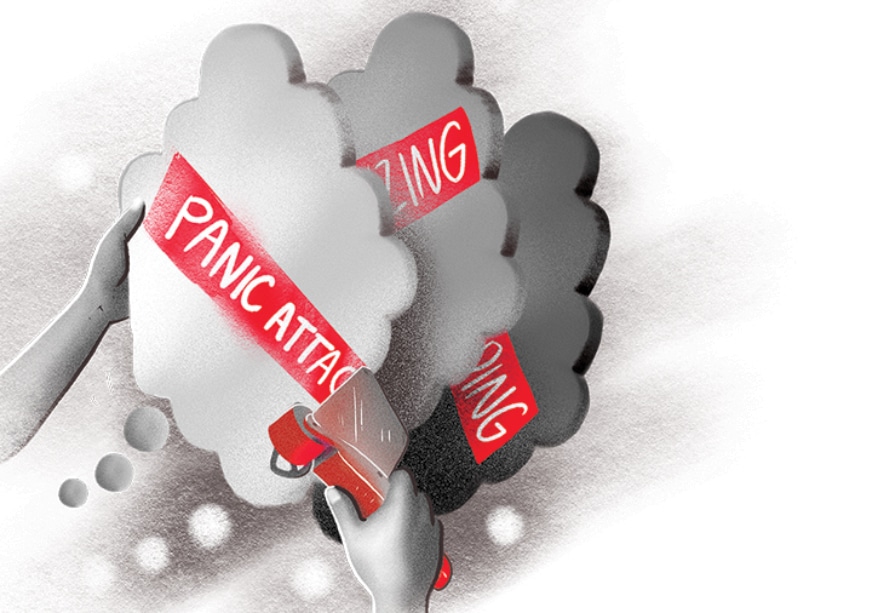
Ask Questions
06 The unknown is the playground of anxiety. So, in challenging the irrational thoughts that drive worry, it helps to have a battery of questions. One of the best, from meditation teacher Sylvia Boorstein, asks: “Is this useful?” Worrying about, say, an upcoming client meeting can feel like you’re doing something to prevent a potential problem, but in truth you’re likely having the same thought over and over. Instead, “ask clients what their deadlines are vs. assuming what they are,” suggests one Brain Squad member. “If it’s money [causing stress], I strategize, what isn’t working, what is working, do a budget, go through the bank accounts and see what can be trimmed, and double check KPIs.”
Say or Pray an Affirmation
07 In times when our equanimity is compromised, it can help to reference short, positive statements, to remind yourself that this discomfort is being caused by a transient and ultimately unimportant event: “It won’t last forever. This too shall pass.” “This is going to be a good time … or a good story.”
Several sign pros also say they find comfort in spirituality and prayer. “I have to have faith that I am working with a purpose,” explains Becky Duke, AP Corp (Sykesville, MD).
Trust In Yourself
08 Trust that you have the resources to overcome the dreaded event that lies ahead, just as you have so many times in the past. For Ben Phillips, Phillips Signs Inc. (Seaford, DE), that means checking the rear-view mirror for perspective. “[It helps] thinking back on some of our most difficult projects and remembering how much I worried about something going wrong — and then it all went very smooth,” he says. “Have faith and it will.”
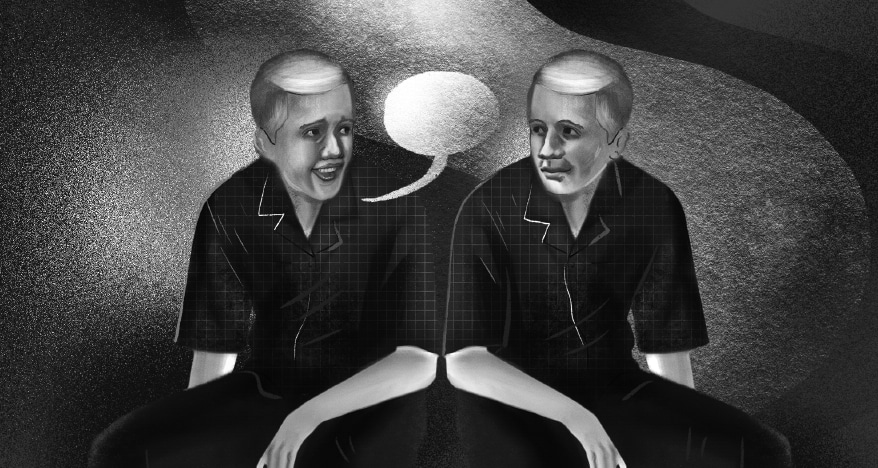
PART TWO: COPING WITH ANXIETY
Understand the Triggers
09 According to some literature, 20% of issues (or people) generate 80% of your anxiety, so seek ways to remove them from your life. “Pay attention to situations that spike your anxiety — whether that’s getting feedback, writing important emails … or starting the day with a messy desk,” Jodie Louise Russell, a doctoral student who studies the philosophy of rumination in depression and anxiety at the University of Edinburgh, recently told The New York Times. “For me, I don’t like big swings, I like to keep things steady and calm,” says Rita Siprak-Weill, Minuteman Press-Annapolis (Annapolis, MD). “So I work hard to keep things organized (have supplies on hand that I need), keep proofs turned around so the job can get into the queue and set customer expectations.”
Look Away from the Screen
10 Social media can offer professional support or validation via interaction with friends. But more often, Facebook, Instagram, TikTok, Twitter — all driven by algorithms designed to provoke emotional responses — will likely exacerbate negative feelings or arouse guilt over wasted time. Alternatively, “try to turn off your brain when you get home,” suggests Kevin Mead, Kolor Werx Creative Services (Portland, OR). “Go outside, play with the kids, do something that can take your mind off the issues at work.” If unplugging is unrealistic, use “mute” or another function to avoid notification overload.
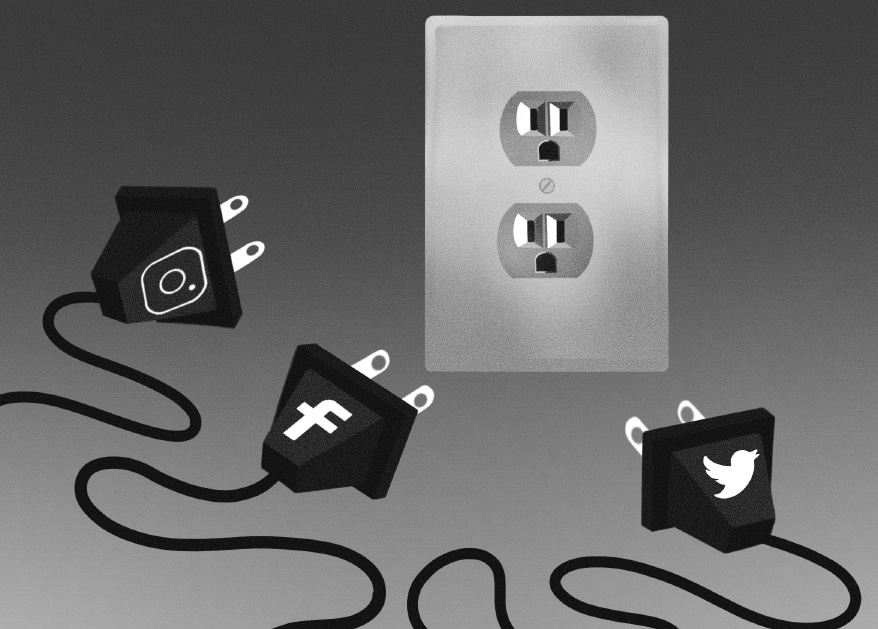
Have a Ritual
11 The word “routine” can be a pejorative, but it can also be a mind saver. “Doing the same thing at regular intervals signals to our brains that we are safe,” writes Charlotte Lieberman in the Harvard Business Review. “Call it a routine, a ritual, an anchor — whatever resonates,” she says. Remember to build rest into your routine, too. “One thing I’ve started doing is closing my door during lunch,” shares Anita Morrish, Image360 San Antonio West (San Antonio). “During the last 15 minutes of my break, I play relaxing music, turn off the lights and computer screens, put on a sleep mask, turn on an oil diffuser and just rest. I usually just start off relaxing my thoughts and most times I end up drifting to sleep.”
Eliminate Stimulants
12 In The Anatomy of Anxiety, Dr. Ellen Vora uses the phrase “false anxiety” to encompass the agitated state that can arise from not enough sleep, forgetting to eat breakfast or simply too much caffeine. An elevated heart rate, shaking hands, quivering voice, could be a panic attack — or it could just be the result of too much espresso. “As sad as it is, put the coffee down,” suggests Mallory Lynn, Signarama Brighton (Brighton, CO). And to those Brain Squad respondents who cited drinking alcohol as a coping mechanism… empathetically, that’s likely not helping either.
Learn from Your Past
13 The problems you’re experiencing today seem fraught and important, but that’s mainly because you’re so narrowly focused on the present. As Mark Twain so deftly put it 150 years ago: “I am an old man and have known a great many troubles, but most of them never happened.” Phillips shares the sentiment. “Trust your instincts, he says. “… Have you noticed that for the most part the things you worry about turn out just fine? You will always have the occasional hiccup. Just fix it and move on.”
Connect With Nature
14 From 2004 to 2012, Japanese scientists spent $4 million studying the physiological impact of “forest bathing,” or spending time around trees. They found it reduces tension, boosts the immune system and amplifies feelings of wellbeing. But time spent in any natural setting, among animals (domesticated or wild) or near bodies of water can all relax the mind. The reason seems to be the way nature absorbs our attention in an undemanding way, giving us “cognitive quiet,” say US academics Rachel and Stephen Kaplan. “We highly recommend that our staff take a break every now and again, take a walk outside and get fresh air, play with the office dogs, go ‘off campus’ for lunch, etc.” shares Derek Atchley, Atchley Graphics (Columbus, OH).
Advertisement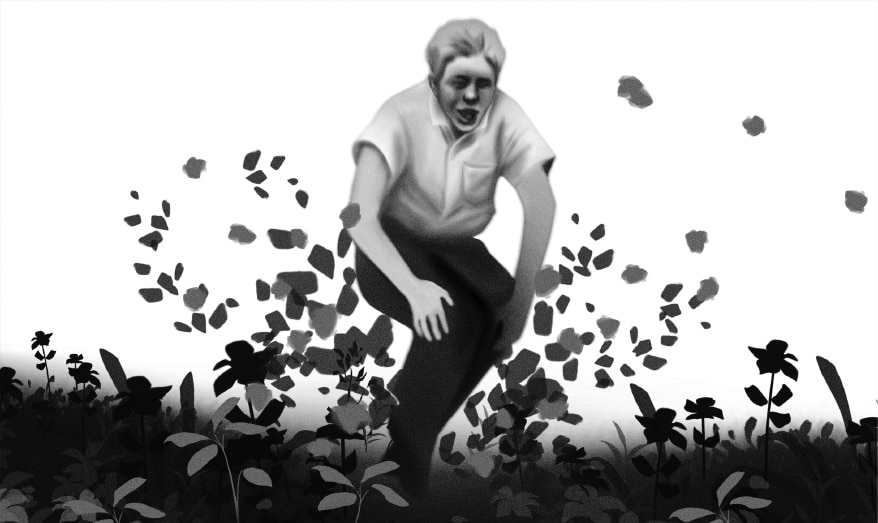
Try Mindfulness
15 In the immediate moment, meditation can interrupt thought patterns enough to break the cycle of anxiety. Focusing on something abstract, like breathing, a stone or a mantra, creates a pause between the stimulus and the response. “Regular meditation helps you to respond to stress instead of react,” explains Russell Toynes, Studio Dzo (Austin, TX). “Being aware of the situation and what you can and cannot control will help you to better assess the challenge and respond more quickly and effectively.”
PART THREE: BUILDING RESILIENCE
Stay Healthy
16 Rest, nutrition and exercise. The science is substantial: People who practice self care are less prone to anxious thoughts. According to neuroscientists out of UC Berkeley, when you don’t get enough sleep, your brain’s amygdala and insular cortex both light up in a pattern similar to the neural activity of people with anxiety disorders. To improve rest and release energy, many find solace in physical activity. “Exercise is my go-to for managing stress,” shares Davis. “[It’s] going to come out one way or the other, so I’d prefer to let it go on the tennis court or workout room than through a terse conversation with my employees.”
Build Social Connections
17 Humans are inherently social creatures and yet much in modern society — from the way our cities are structured, to the concept of individualism, to social media — is eroding the bonds between us at a cost. Reasserting the primacy of in-person connections in your life can thus be vital to dealing with anxiety, not just by boosting mood, but having someone to talk to when assailed by anxiety. “We stress a focus on family, friends and complementing our work with having a full life,” says Atchley. “That way, even if a day or a project is frustrating, we’re all already in a good place.”
Show Yourself Compassion
18 Business coach Jerry Colonna says there are three basic risks that we’re all trying to manage: love, safety and belonging. The existential fear that these needs could be threatened is the root of so much anxiety, he says. “I know for myself that the fear of disappointing others is a threat to my belonging…” The key to dealing with such irrational thinking is self-compassion and accepting the fullness of ourselves, he argues in his book, Reboot: Leadership and the Art of Growing Up. Jeff Rice, Bald Guy Files (Montrose, CO), subscribes to this notion: “Not all days are the same for visible results. But [I know] that every day I am doing my best and over time it will work out.” So cut yourself some slack. You may find it transformative.
Reframe Anxiety
19 Tech entrepreneur Naval Ravikant has questioned if he’d have been as successful if he “wasn’t as anxious, because anxiety comes from fear and it’s also a motivator” — an interesting reminder that true mental health comes from accepting the full spectrum of emotions. The answer isn’t to stifle negative feelings or berate ourselves. “Rather, we need to understand what they’re for,” Dr. Emiliana Simon-Thomas, science director at Berkeley’s Greater Good Science Center told Time, arguing we should relate to unpleasant emotions in a way that’s “more growth- and learning-oriented.” Davis agrees that “tension and stress are natural and have a purpose.” So she encourages employees to talk about what worries them in terms of clients and projects. “We all have ‘Groundhog Days,’ and we want to have a teammate to lean on when we aren’t at our best,” she says.
Get Used to Being Uncomfortable
20 None of this is to say anxiety will feel any better. Its evolutionary roots as a warning system mean it will always feel at least uncomfortable. Anxiety becomes maladaptive when it paralyzes. The key is to appreciate that we humans are “anti-fragile’” — we strengthen and grow when challenged. “There will be mistakes and issues. Scratches in the sign face, runs in the paint, people calling in sick. But it is how we handle these issues,” says Mike Hobbs, Integrity Sign Solutions Inc. (New Albany, IN). “We have developed a culture in our shop that it’s OK if we mess up — let’s rally around, fix it and send a great product to our customer.” When we know what’s required and can marshal the resources to cope, scary situations become challenges rather than threats. In other words, keep calm and sign on.
AdvertisementSigns of the Times has been the world leader in sign information since 1906. Contact Signs of the Times' editors at editor@signsofthetimes.com.

SPONSORED VIDEO
Introducing the Sign Industry Podcast
The Sign Industry Podcast is a platform for every sign person out there — from the old-timers who bent neon and hand-lettered boats to those venturing into new technologies — we want to get their stories out for everyone to hear. Come join us and listen to stories, learn tricks or techniques, and get insights of what’s to come. We are the world’s second oldest profession. The folks who started the world’s oldest profession needed a sign.
You may like

American Sign Museum Names New Executive Director

3 Things Print Pros Must Do to Build Stronger Relationships in the Interiors Market

Graphics Turn an Eyesore Cooler Into a Showpiece Promo in Historic Plaza
Subscribe

Bulletins
Get the most important news and business ideas from Signs of the Times magazine's news bulletin.
Most Popular
-

 Tip Sheet1 week ago
Tip Sheet1 week agoAlways Brand Yourself and Wear Fewer Hats — Two of April’s Sign Tips
-

 Ask Signs of the Times3 days ago
Ask Signs of the Times3 days agoWhy Are Signs from Canva so Overloaded and Similar?
-

 Photo Gallery1 day ago
Photo Gallery1 day ago30 Snapshots of the 2024 ISA Sign Expo
-

 Real Deal1 week ago
Real Deal1 week agoA Woman Sign Company Owner Confronts a Sexist Wholesaler
-

 Benchmarks6 days ago
Benchmarks6 days ago6 Sports Venue Signs Deserving a Standing Ovation
-

 Editor's Note2 weeks ago
Editor's Note2 weeks agoWhy We Still Need the Women in Signs Award
-

 Women in Signs1 week ago
Women in Signs1 week ago2024 Women in Signs: Megan Bradley
-

 Photo Gallery1 week ago
Photo Gallery1 week ago21 Larry Albright Plasma Globes, Crackle Tubes and More











